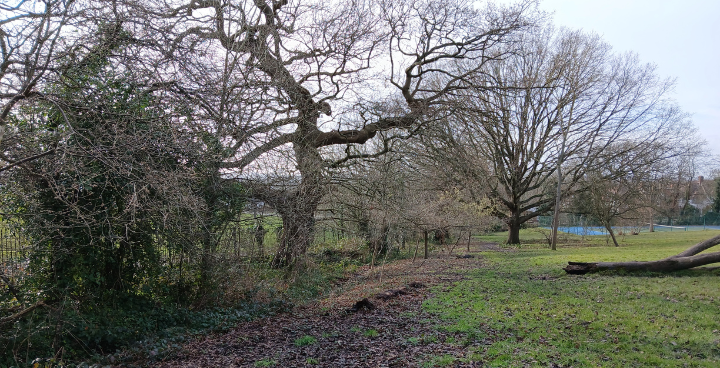
Why are OPM caterpillars bad for oak trees?
OPM caterpillars can damage our precious oak trees by feeding on the leaves. Large numbers can strip whole trees almost bare of leaves, weakening the trees and making them vulnerable to other threats such as drought and disease.
Are OPM caterpillars harmful to people and animals?
The caterpillars emerge about April every year and develop thousands of tiny hairs which contain an irritating substance called thaumetopoein. This can cause itching skin rashes, eye irritations and sore throats in people and animals who come into contact with them. In rare cases they can cause breathing difficulties and allergic reactions.
It is important to avoid contact with the hairs, to teach your children to avoid them, and to protect your pets from them. Curious pets might need to be restrained from approaching nests and caterpillars.
However, if you are affected, the symptoms, although unpleasant, are not usually medically serious and will pass in a few days. You can ask a pharmacist for something to relieve the symptoms.
If you do have a serious allergic reaction, call NHS111 or see a doctor. Similarly, consult a vet for badly affected animals
What do OPM caterpillars look like?
These caterpillars (pictured above) have very long, white hairs and a distinctive habit of moving around oak trees in nose-to-tail processions, which gives them their name.
They make silken webbing nests, which are white when new, and often have silken trails leading to them. They quickly become discoloured and harder to see against the dark colour of oak tree bark.
For more details of how to identify an OPM caterpillar please see the Forestry Commission website.
What to do if you see OPM nests or caterpillars
If you see any OPM nests or caterpillars, do not touch or approach them.
Please report them immediately to the Forestry Commission, which is leading efforts to control its population, spread and impacts.
How to report OPM
The preferred way to report sightings is with the Forestry Commission’s Tree Alert on-line pest reporting form, which you can access via the Forestry Commission website page about OPM. You will have to add a photograph to your report, but do not risk contact to get a photograph.
If you cannot use Tree Alert or get a photograph, you may report them by:
- email to opm@forestry.gsi.gov.uk; or
- telephone to 0300 067 4442.
Control programme
The Forestry Commission are working with councils and major oak tree owners on a programme funded by the Department for Environment, Food & Rural Affairs (Defra) to survey for and treat affected oak trees and remove nests to minimise the population, spread and impacts of the pest. You can help us by reporting sightings as above. Details of the programme are available on the Forestry Commission website.
If you have an oak tree on your property you can find out more in the Forestry Commission OPM manual.
Further information
For detailed information about OPM, visit the Forestry Commission’s website at www.forestry.gov.uk/opm.



